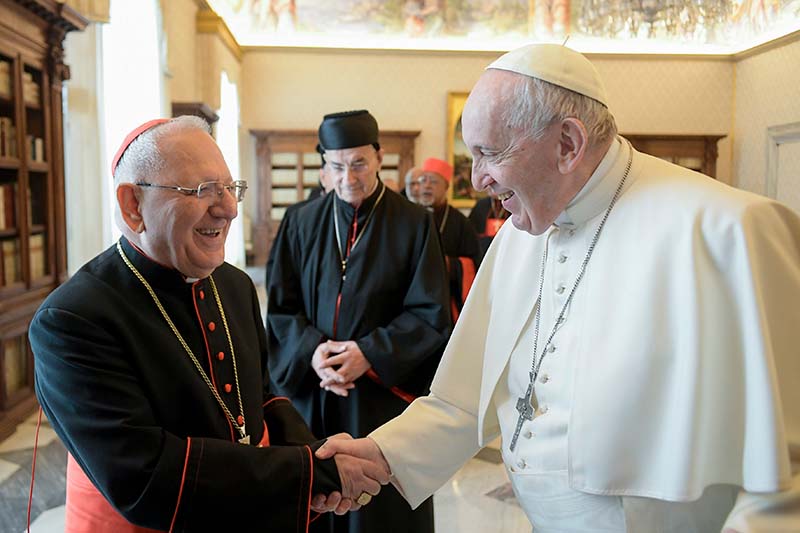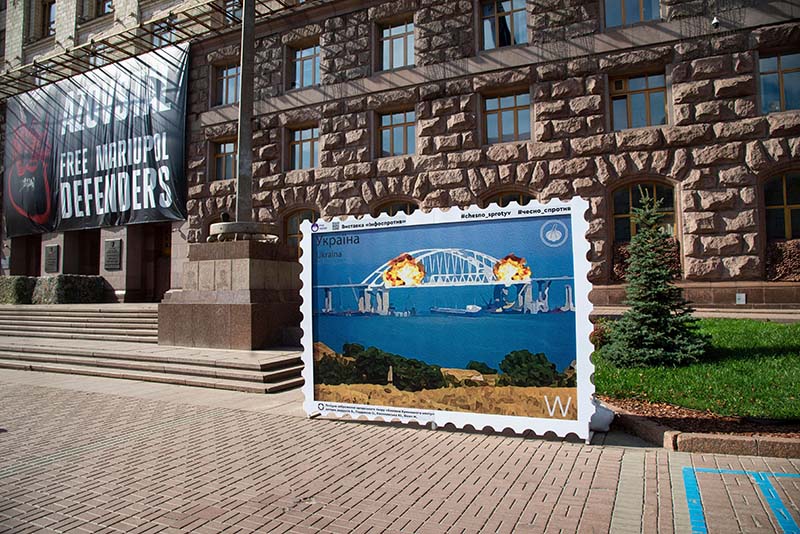At the conclusion of the Eucharistic Celebration for the canonisation of Bishop Giovanni Battista Scalabrini and Artemide Zatti on Sunday, Pope Francis recalled the beginning of the Second Vatican Council 60 years ago. He did so in the context of the threat to the world of nuclear war. The year of the opening of the Council, 1962, was also the year of the Cuban missile crisis, in which US President John F Kennedy and Soviet premier Nikita Khrushchev clashed in a confrontation that threatened the future of the world. Pope Francis stressed that “we should not forget the danger of nuclear war that menaced the world right at that time”.
“Why don’t we learn from history?” he asked, noting that “even at that moment, there were conflicts and huge tensions, but the way of peace was chosen”.
He spoke the day after an attack on the Kerch Bridge, an important supply route that links southern Russia to Crimea, annexed by Russia in 2014. The attack occurred at 6.07 am local time on 8 October. Russian President Vladimir Putin on Sunday called the attack a “terrorist act” carried out by Ukrainian special forces, and Russia opened a criminal terror investigation into the explosion. Its authorities said a truck bomb had caused the attack, in which three people were killed. Video footage showed the explosion happening as a trucked passed a train, though other theories suggested the explosion originated beneath the bridge. Road and rail traffic on the bridge were temporarily halted, before one of the roads on the bridge and the railway started operating again.
In reprisals on Monday, Russia launched some 200 drone and rocket attacks on locations across Ukraine. The main targets appeared to be energy facilities or locations associated with Ukraine’s SBU special forces. Ukraine’s air defences intercepted some 25 per cent of these attacks, but later waves were not intercepted, suggesting the sheer number of missiles had overwhelmed the air defences.
Ukraine President Volodymir Zelenskyy subsequently appealed to US President Joe Biden for more air defence equipment, which Mr Biden promised to supply.
Ukraine’s emergency service said on Tuesday that 19 people had been killed in the strikes, with 105 injured. “As a result of attacks, critical and civil infrastructure facilities were struck yesterday. In 12 regions and in Kyiv city, where more than 30 fires broke out that were extinguished,” the State Emergency Service said.
Meanwhile Archbishop Paul Gallagher, the Vatican’s foreign minister, at an event marking South Korea’s National Foundation Day on Friday last week, mentioned the current geopolitical situation, stating that conflict cannot solve the problems the world faces, which are always best addressed through diplomacy. He also said that the Pope is very eager to visit the northern part of the Korean peninsula.
“It is urgent today to promote an authentic culture of peace, based on the promotion of dialogue in compliance with international law, which can ensure the peaceful coexistence of peoples,” he said at the Embassy of the Republic of Korea in Rome.
Given the current geopolitical situation in which world peace is seriously threatened, war is “completely unsuitable as a solution to international conflicts, it is not in line with humanity and its natural mission to peace”, Gallagher said.
Archbishop Gallagher reiterated the Holy See’s commitment to working with Korea to achieve lasting peace and true harmony in Korea and in the world at large. He expressed his gratitude for “Korea’s respect for the Catholic Church and the Church’s contribution to Korean society, especially in the fields of education and society”. In addition, the Archbishop assured his hosts that the Holy See “supports South Korea’s deepest aspirations, that of reconciliation and prosperity throughout the Korean peninsula”. Gallagher stressed that the Pope has special concerns for the North Korean people, and referred to the Pope’s great desire to visit the North. “If he receives an official invitation from the authorities, he will visit the northern regions”,” Gallagher said.
.



 Loading ...
Loading ...